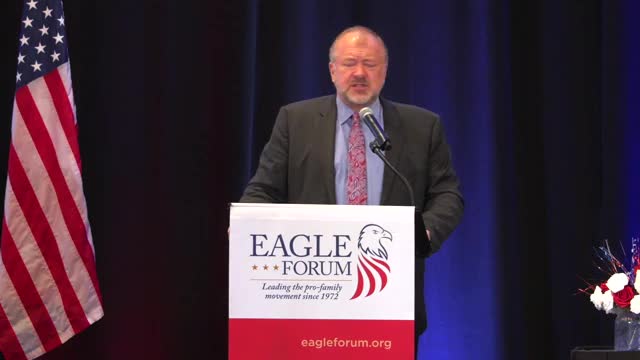Internal threat revealed in US voting machine scandal
October 21, 2024 | National Eagle Forum, Utah Lobbyist / NGO, Utah Legislative Branch, Utah
This article was created by AI summarizing key points discussed. AI makes mistakes, so for full details and context, please refer to the video of the full meeting. Please report any errors so we can fix them. Report an error »

In a recent government meeting, significant concerns were raised regarding the security of electronic voting systems in the United States. A speaker highlighted an alarming connection between the software used in these voting machines and the Venezuelan government, allegedly developed with the assistance of Cuban intelligence. This revelation has sparked fears of an internal threat to national security, as the software is reportedly in use not only in the U.S. but also in 71 other countries.
The speaker criticized the CIA and FBI for their failure to detect this potential security breach, questioning the effectiveness of U.S. intelligence agencies in safeguarding the electoral process. They pointed out that warnings had previously been issued by the U.S. embassy in Caracas, which were documented in leaked files, yet no substantial action was taken by intelligence officials.
Further, the discussion delved into the historical context of the CIA's evolution, suggesting that a shift in its operational ethos since the late 1970s has led to a decline in its effectiveness. The speaker referenced past leaders like Bill Casey, who advocated for more independent operations outside the agency's bureaucratic constraints, implying that current personnel may lack the resolve or capability to address such critical threats.
The meeting concluded with a promise of forthcoming revelations regarding individuals allegedly complicit in facilitating these security vulnerabilities, indicating that the implications of this issue could extend into the political realm, affecting trust in government officials across party lines.
The speaker criticized the CIA and FBI for their failure to detect this potential security breach, questioning the effectiveness of U.S. intelligence agencies in safeguarding the electoral process. They pointed out that warnings had previously been issued by the U.S. embassy in Caracas, which were documented in leaked files, yet no substantial action was taken by intelligence officials.
Further, the discussion delved into the historical context of the CIA's evolution, suggesting that a shift in its operational ethos since the late 1970s has led to a decline in its effectiveness. The speaker referenced past leaders like Bill Casey, who advocated for more independent operations outside the agency's bureaucratic constraints, implying that current personnel may lack the resolve or capability to address such critical threats.
The meeting concluded with a promise of forthcoming revelations regarding individuals allegedly complicit in facilitating these security vulnerabilities, indicating that the implications of this issue could extend into the political realm, affecting trust in government officials across party lines.
View full meeting
This article is based on a recent meeting—watch the full video and explore the complete transcript for deeper insights into the discussion.
View full meeting

